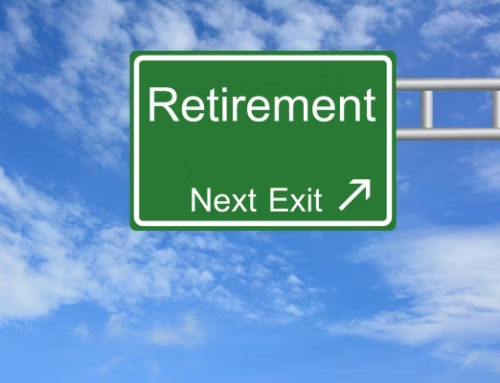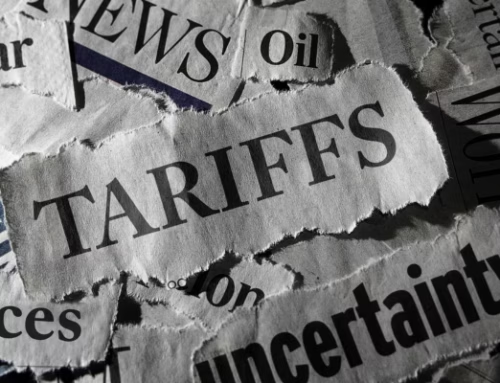- A soft landing will be hard to achieve.
- Instead of buying on dips, the new correct policy is to sell the rallies
- You need tactical asset allocation; the period of putting some money in stocks and bonds and waiting 30 years is finished.
- The inflationary cycle ends with an inflationary bust and/or a liquidity crisis.
- An inflationary environment means the death of the index fund.
- Every inflationary period leads to deglobalization, the reemergence of capital control, price control, and foreign exchange controls.
- When reserves decline year over year, there has always been some financial crisis outside the U.S.
- An early liquidity crisis has started.
- The future state of Europe: Gave thinks we might be arriving at the end of social democracy in Europe. He added, “There is no philosophical difference between the economics of social democracy and communism.”
- Germany is bankrupt, and people don’t understand that. Its economy is very one-dimensional: “They make cars and machine tools to make cars… What they do is that they make combustion engine cars that are the best in the world, but nobody’s going to use combustion engine car ten years down the road.”
- The Fed is bluffing on tightening due to a large amount of government debt that needs to be paid off (inflation would make it easier for the government to pay that off).
- We need a fall in all prices or a recession in the U.S. to have a meaningful rollover in inflation.
- Our top fear is that the Federal Reserve may get so far behind the curve that it can’t ever catch up. This could happen if inflation rises faster than the Fed hikes. In that case, real interest rates would actually be moving lower. That’s when people start fleeing a currency. Then inflation gets very high, and things get worse. This isn’t just a U.S. problem. It is potentially even worse in Europe and much of Asia.
- We’ve got all examples of excess and fraud and all the stuff that you see right at the end of the cycle. So, I think we’re set up here for what could be a fairly deep recession. And I worry that we no longer have the ammunition to deal with it.
- There is indebtedness among the four major economies (US, China, Japan, and Europe), and it’s a drag on growth.
- Hunt thinks China is more over-indebted than Europe when Chinese economic data is adjusted for errors/overstatements.
- Japan is even more over-indebted than China, but China’s indebtedness is increasing much faster than others.
- List of indebtedness (from most to least): Japan, China, Europe, U.S.
- This reduces the probability of China overtaking the U.S. as a global reserve currency.
US Economy
- Consumer spending held up better than expected in April, with real expenditures rising above the pre-COVID trend.
- Spending on services has now fully recovered.
- Consumers dipped into their savings, which dropped to the lowest level since 2008 as a percentage of disposable income.
- Households also tapped their credit cards, with total consumer credit approaching the pre-COVID trend.
- Real disposable income is now well below the trend.
- The April PCE inflation report showed persistent and broad inflationary pressures. The headline index is slightly below the highs on a year-over-year basis.

- Core inflation remains elevated
- Is inflation “cooling” sufficiently for the Fed to pause in September? Not yet.
- The updated May U. Michigan report showed further deterioration in consumer sentiment.
- Elevated gasoline prices could inflict further damage to consumer sentiment going forward.
- Retailers are now facing an inventory overhang, setting the stage for deep discounts.

- The Conference Board’s consumer confidence index was firmer than expected this month.

- The gap between this index and the one from the University of Michigan continues to widen.

- Deteriorating small business sentiment suggests that hiring will slow.

- Home price appreciation hit a record high in March, exceeding 21%. This was likely the peak.
- Higher mortgage rates point to moderating home price appreciation.
- The gap between home prices and wages continues to widen. This was sustainable when mortgage rates dipped below 3%, but not now.
- The U. Michigan index of buying conditions for houses (based on consumer sentiment) has collapsed.

- Housing demand continues to ease, forcing more sellers to cut prices.
- Homebuilder sales are falling quickly, according to Evercore ISI.
- The Dallas Fed’s regional manufacturing index showed slowing factory activity in May.
- Demand has been weakening.
- Nordea’s GDP model signals a recession within a year.

- Despite the weakness in the regional Fed reports, the ISM Manufacturing PMI showed an improvement in May.
- New orders unexpectedly strengthened.
- Price pressures remain elevated.
- Factory hiring ground to a halt in May.

- The spread between new orders and inventories points to weakness in the ISM PMI later this year.

- The combination of robust factory activity and near-record demand for labor suggests that financial conditions haven’t been tight enough to sufficiently slow the economy and ease inflationary pressures. It’s full speed ahead for the Federal Reserve.
- The Fed’s Beige Book report continues to point to price pressures. But shortages are gradually easing, and we are starting to see some concerns about slowing demand.
- Unemployment applications remain exceptionally low.
- However, the ADP report showed slower job gains in May, well below forecasts.

- According to ADP, small businesses have been shedding jobs in recent months.
- On average, economic data continues to surprise to the downside.

- In particular, housing market data has been very soft.
- The recent decline in CEO confidence does not bode well for capital spending.
- The bottom quantile of US households now has less excess savings than in 2019. Note that the top two quantiles represent over 61% of US consumption.
Market Data
- The Nasdaq 100 earnings forecasts saw substantial downward revisions recently.

- More stocks are making new 52-week highs than lows again, which is a sign of improving market breadth.
- Last week’s returns by sector:

- US households haven’t been this gloomy on stocks in about a decade, according to the Conference Board.

- The market continues to price in a recession.
Quote of the Week
“Be sure to put your feet in the right place, then stand firm.” Abraham Lincoln
Picture of the Week

All content is the opinion of Brian J. Decker





